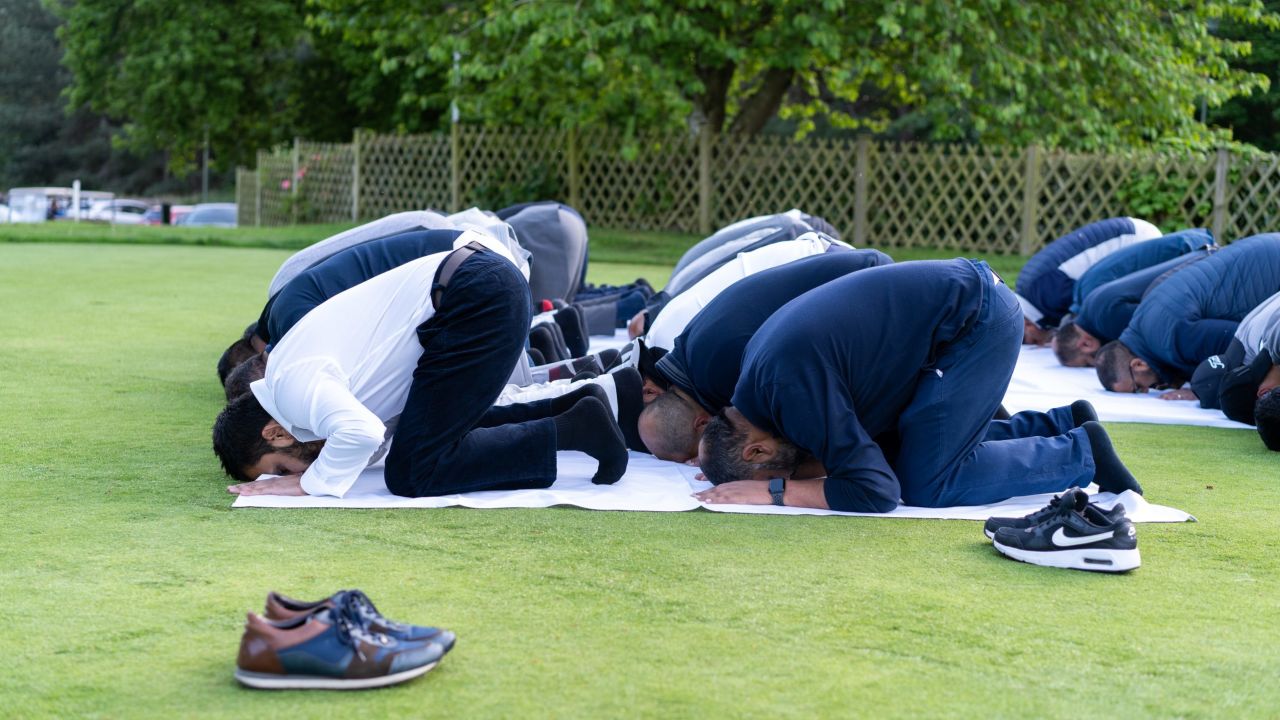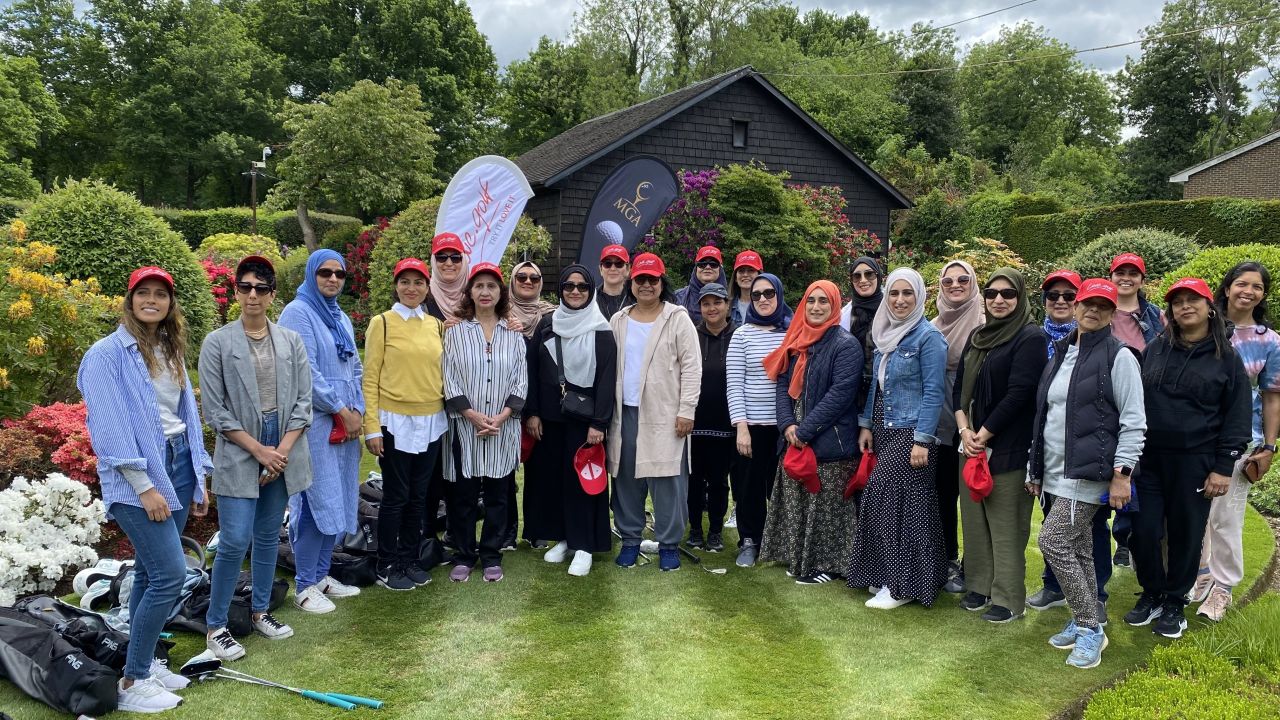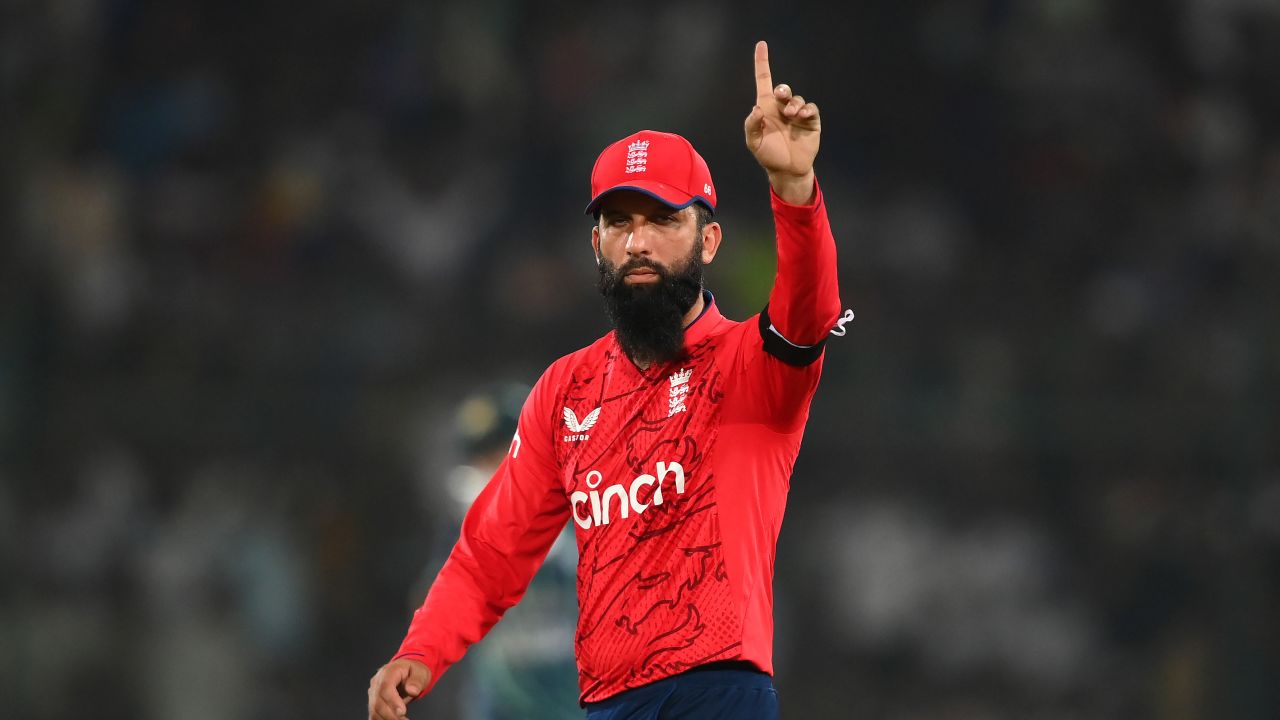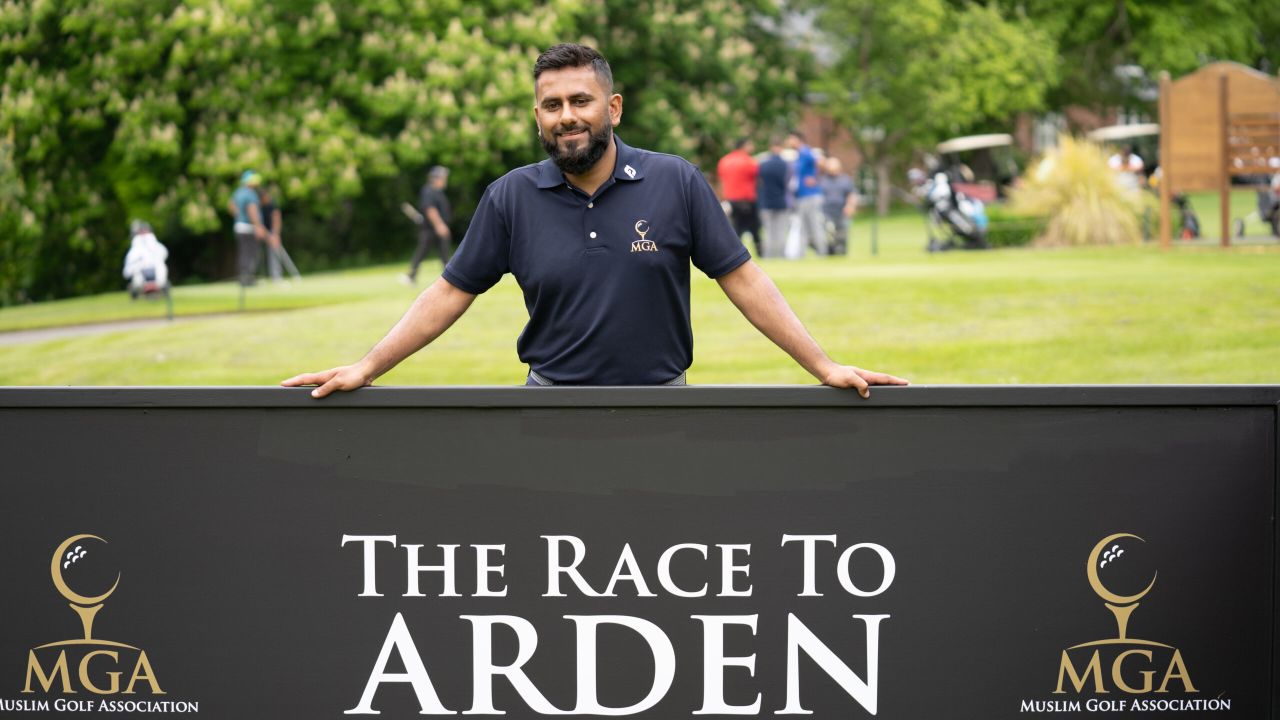CNN
—
Amir Malik is a man in love with golf. Yet golf has not always loved him back.
A devoted sports fan since his childhood in Kingston upon Thames, London, he was fascinated with golf long before he took his first swing. But knowing nobody else who played, Malik settled for a sideline view.
That all changed in 2012, when his former boss invited him to try his hand at a driving range.
“From the first ball I thought, ‘This is it. This game is incredible,’” Malik, now aged 38, told CNN.
“I’ve played a lot of sports, but there aren’t too many when you go to bed thinking about it and you can’t wait to get up to go back and play again.”
Eventually, Malik was ready to take his game to the next level. Joining a municipal club in 2017, he began competing in Sunday morning tournaments.

It was at these events that the “ugly side” of the game was swiftly revealed to Malik, who felt isolated by the jarring clash of club culture and his Muslim faith.
The discomfort would begin before a ball was struck, as Malik says he drew questioning looks at his refusal to partake in wagers over in-house competitions, as gambling is forbidden in Islam. Out on the course, stepping aside to observe salat – ritual Islamic prayers performed five times a day – further heightened his anxieties.
“You would feel scared, intimidated. How are people going to react?” he recalled.
“We always made sure we were out of the way, but you were made to feel very, very uncomfortable.”
His unease was exacerbated by the commonplace tradition of clubhouse drinking after competitions. As Malik doesn’t drink alcohol, he was left to hand in his scorecard and make an early exit.
As he improved and played more prestigious courses, discomfort often escalated into outright hostility. Malik, who is of Pakistani descent, said he has experienced racism on the golf course.
“You turn up and immediately you can feel the vibe and the atmosphere, the way you’re spoken to, the way you’re treated,” he said.
“And you’re just like ‘Wow, just because I’ve got a beard, I’m brown, and I don’t look like you, you probably think I can’t play or you don’t think I know the etiquette.
“It used to really frustrate me because you sense it, you feel it, you grow up in it, you know what it feels like. And it’s not until you hit one straight down the middle of the fairway – when you’ve smoked a drive – that people then think, ‘Oh, he can play,’ and it’s too late by then.”
Malik’s passion for golf was not soured by his experiences. On the contrary, they spurred him to scout out other British Muslims who shared his love of the game.
Encouraged by “pockets” of interest he had seen on his travels, in December 2019 Malik put a name to his new venture – the Muslim Golf Association (MGA) – and sent out invitations to a charity golf day at The Grove, a prestigious venue just outside London.
The MGA’s maiden event would be open to all religions; prayer facilities would be provided and there would be no alcohol or gambling. Malik was stunned by the response. Within 24 hours, all 72 places had been booked, with over 100 people on the waiting list by the week’s end.
The event, held in August 2020, raised £18,000 for charity, and the sight of over 60 players praying together in the Grove’s courtyard marked a watershed moment for Malik.
“That for me was just amazing,” he said. “That we could get guys together, feeling safe and comfortable and just be on our own platform.”

Since then, the MGA has partnered with the Marriott hotel chain to stage a tri-series tournament beginning in 2021, with the winners of this year’s edition securing an all-expenses paid trip to the Turkish golfing paradise of Belek.
“I looked at golf and thought, it’s a sport played by White, old, rich men, period,” Malik said. “We’ve now got an opportunity to actually show the world that non-Whites can play this game and we’re pretty damn good at it.”
The overwhelming response to MGA events among Muslim women has been equally exciting for Malik. After launching a trio of pilot sessions in Birmingham last year, 1,000 players have already signed up to the string of women-only taster events scheduled across the country over the next two months.
Malik believes Muslim women in the UK are being held back from participating in more sports because of a lack of all-female facilities and sessions.
The MGA has no dress code, which means women can play in a niqab (face veil) and an abaya (long robe) if they wish, and it hires sections of courses for its exclusive use for taster events, to ensure a comfortable experience for new players.
“The response has been absolutely incredible, mindblowing,” Malik said. “I say to women, ‘I don’t care what you wear, what you look like, just come with a smile and with a pair of trainers and we’ll take care of everything else.’ We’ve not done anything revolutionary, we’ve just made it accessible, and the demand is incredible.”

To date, MGA events have attracted over 1,300 participants. Looking forward, the organization aims to take its efforts global to reach as many new players as possible.
Growing up, Malik had to look to other sports for Muslim role models, such as England cricketer Moeen Ali. From Muhammad Ali, to Kareem Abdul-Jabaar, to Mohamed Salah, countless Muslim athletes have carved out glittering careers across a range of sports, yet professional golf offers a comparative scarcity of examples.

According to a survey cited by England Golf, the country’s governing body for amateur golf, just 5% of golfers in England are from ethnically diverse groups.
By establishing relationships with groups such as the MGA, England Golf’s chief operating officer Richard Flint believes the barriers that have contributed to a lack of diversity in the game can be understood and broken down.
“No-one should feel uncomfortable walking through the doors of a golf club or facility simply because of their age, race, ethnicity or gender,” Flint told CNN.
“As a modern, forward-thinking organization, we want golf to be open to everyone and change negative perceptions around the game that belong in the past.”

While Malik hopes to soon see Muslim players competing on professional tours, he says he did not form the MGA to produce a Muslim Tiger Woods.
“If that happens as a byproduct, then great,” he said. “But if we can get the golf industry to take a long, hard look at itself and make itself accessible, make itself open and diverse, then that’s a huge achievement.
“The golf course doesn’t discriminate. The ball doesn’t ask what color, race or gender you are … yet it’s been a very closed club that’s been open to very few people.
Malik believes it’s time for change. “Golf has a lot of exceptional values and traditions, which I still think it needs to keep firm, but it has to evolve … if it were to open itself up and let other cultures and traditions bring all that great stuff to this game, it could be absolutely wonderful.”

